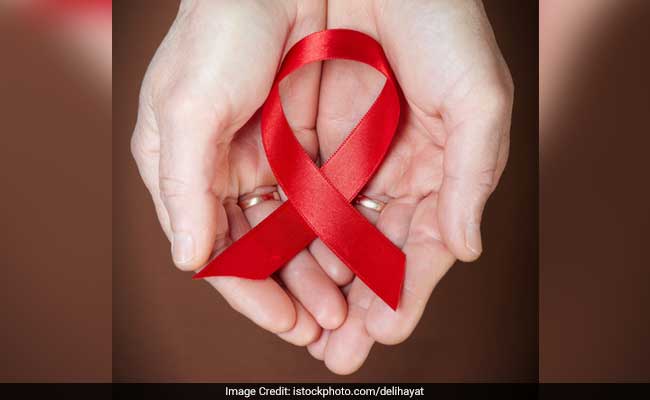This World AIDS Day, know that it is your right to health you must have it!

World AIDS Day 2017: Right to health
HIGHLIGHTS
- World AIDS Day is celebrated on 1st December every year
- Once infected, a person continues to be affected with HIV for life
- The fact is HIV and AIDS is not the same thing
World AIDS Day 2017
Acquired Immuno Deficiency Syndrome or AIDS is a pandemic disease which is caused due to the infection of Human Immunodeficiency Virus (HIV). In order to create awareness about combating AIDS, the World AIDS Day is celebrated each year on 1st of December following a particular theme. This year, the theme reads, 'Right to Health'.
The World Health Organization aims at creating awareness about this epidemic which affects millions of people across the globe and those who are vulnerable to it till they acquire global health coverage against AIDS.
WHO is working under the slogan of 'Everybody counts' to ensure safe, quality and effective medication and diagnosis for people who are dealing with this disease and also protect them against any form of financial harassment at the same time. This year, they aim to provide every individual with their right to health and with equal and adequate care against AIDS.
History of World AIDS Day
It was Thomas Netter and James W. Bunn whose vision gave birth to the idea of World AIDS Day in August 1987. The two were public information officers of the World Health Organization for AIDS Global Programme in Geneva, Switzerland.
The idea was recommended to the Director of the same programme, Dr Jonathan Mann who approved it and suggested to observe December 1 each year as the World AIDS Day from 1988.
The reason for picking this date was the fact that it would be far from election and close to holidays like Christmas. So, the day should be observed at a time when it will catch more attention of people around the world through broadcast media and other forms of media. Later, the joint AIDS programme by the United Nations UNAIDS came into effect in 1996.
In the initial years, the themes were focussed on kids and youngsters. Later, it was recognised as a family disease and that any person of any age group can be affected with HIV. From 2007, the World AIDS Day was recognized by the red ribbon which is the iconic AIDS display by the White House.
What is HIV?
The Human Immunodeficiency Virus, unlike other viruses, does not go away from your body. A person who is infected with this disease is known as an HIV positive person. Once infected with it, a person continues to be affected with this virus for life.
Other viruses take on your body's immune system. However, this one takes on your immune system. The immune system is supposed to protect your body against diseases. But HIV takes on CD4 cells and turns them into a virus factory. So, once it takes on your body, it produces a thousand copies of the same and eventually all your cells get infected with it. The weak and infected cells do not work well and die quite early. As a result, your body becomes weak and is not able to survive for too long.
What is AIDS?
AIDS is the last stage of HIV. Most people end up confusing the two. The fact is HIV and AIDS is not the same thing. A person infected with HIV can take 10 to 11 years to develop AIDS even if he or she is not taking a treatment for the same.
If HIV is diagnosed well in time, medicines can help slow down the disease and its progression towards AIDS. But, if you develop AIDS, medicines will be used to bring the immune system back to normal state.
Where in the past getting infected with HIV was no less than a death sentence for a person, medical advances have now contributed in improving the current situation. People can now live longer with HIV.
How does it spread?
The disease can potentially be transmitted from one person to the other in these ways:
1. Sexual intercourse with an HIV positive person
2. Sharing drug needles with a person who is infected with HIV
3. It may even pass on from a mother to her child during pregnancy or through breastfeeding.
So, this World AIDS Day, know that it is your right to health and you must have it!
The myths that AIDS spreads through hand shake, sitting or eating together, a hug, sneeze or even using the toilet together are all fake.
Signs and symptoms of HIV/AIDS
A person infected with HIV/AIDS shows the following signs and symptoms:
1. Fever
2. Chills
3. Enlarged glands
4. Weight loss
5. Sore throat
6. Sweating at night
7. Fatigue
8. Joint pain
9. Red rashes
10. Muscle pain
The symptoms are not very different from most other diseases. This is why most people tend to miss the symptoms of HIV. To make it worse, most of the symptoms do not show in the initial years and worsen over the years. Over this period, the virus goes on to weaken your immune system greatly which is incurable.
When it reaches the last stage, it becomes AIDS. This is when you immune system is too weak to fight the disease and the symptoms in this stage are completely different. They include:
1. Chronic fatigue
2. Blurred vision
3. Dry cough
4. Diarrhoea
5. Night sweats
6. High fever
7. Swollen glands
8. Shortness of breath
9. Pneumonia
10. Tuberculosis
11. Infection of the brain
12. White spots on tongue and mouth
13. Inflammation of oesophagus lining
Happy World AIDS Day!
DoctorNDTV is the one stop site for all your health needs providing the most credible health information, health news and tips with expert advice on healthy living, diet plans, informative videos etc. You can get the most relevant and accurate info you need about health problems like diabetes, cancer, pregnancy, HIV and AIDS, weight loss and many other lifestyle diseases. We have a panel of over 350 experts who help us develop content by giving their valuable inputs and bringing to us the latest in the world of healthcare.














